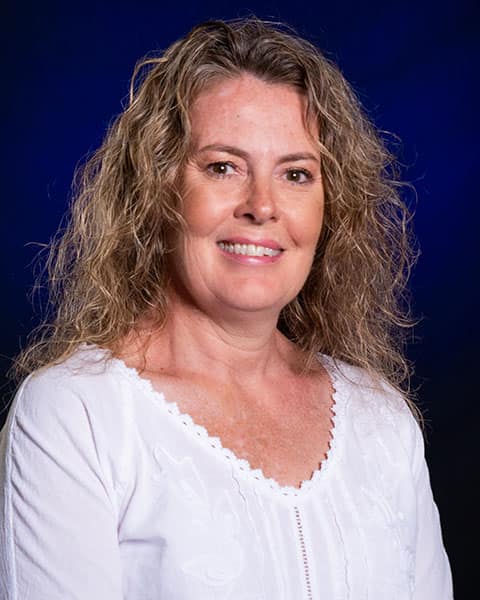
The College of Engineering will help you develop the skills and knowledge necessary to be a productive engineer, starting from your first day as a student at Embry-Riddle Prescott. From hands-on design projects to theoretical analysis, you’ll be challenged, supported, prepared, and mentored by some of the nation’s most outstanding faculty in the COE's three departments — Aerospace Engineering, Mechanical Engineering, and Computer, Electrical, & Software Engineering. This will ensure you’ll be well-equipped to take the next steps toward your future, whether you choose graduate school or a career.
Dean for the College of Engineering
Embry‑Riddle is searching for a Dean of the College of Engineering for its Prescott campus.
We invite you to learn more about the position.
Interest in the position should be submitted via the Talent Profile.
Featured Video


Meet the Dean
Dr. Kathy Wood
The dean is responsible for the strategic direction of the college. She focuses on facilities, accreditation and curriculum reform, and is the primary focal point for external relations.
Bachelor's Degrees
Bachelor of Science in Aerospace Engineering
The Aerospace Engineering program at Embry-Riddle Prescott is rated first in the nation by U.S. News & World Report. The curriculum provides you with specific aerospace design skills and a broad exposure to theory, modern analysis, measurement, and communications and computational techniques essential to the profession.
Bachelor of Science in Computer Engineering
The Computer Engineering program at Embry-Riddle is a unique application of Embry-Riddle's traditional strengths in computer science and engineering and the emerging field of distance education. Students acquire a broad background in computing machinery, concentrating on programming languages, circuit theory, embedded control systems, real-time systems, and software engineering.
Bachelor of Science in Electrical Engineering
The Bachelor of Science in Electrical Engineering provides the opportunity to acquire a broad background in circuit theory, communication systems, computers, control systems, electromagnetic fields, energy sources, and systems and electronic devices. With an emphasis on design, the culmination of the program is a senior year capstone project that teams electrical engineering students with students from the aerospace and software engineering programs to build an aerospace system or subsystem. The student also gains specialization in avionics appropriate for entry-level positions in industry.
Bachelor of Science in Mechanical Engineering
Modern advances in mechanical engineering span from the very small, such as nanotechnology and Micro-Electro-Mechanical Systems (MEMS), to the vastness of space systems. The Mechanical Engineering program at Embry-Riddle provides a strong foundation in basic engineering allowing the student to effectively study the latest technology in several strength areas, including robotics and high-performance vehicles. The curriculum is a balance of theory and practice, encompassing aerodynamics, structures, propulsion, controls, materials, instrumentation, electrical fundamentals, computer applications, and design.
Bachelor of Science in Software Engineering
The Bachelor of Science in Software Engineering degree prepares students for an entry-level software engineering position in a variety of industries ranging from aerospace to video game development. Because of the inclusion of real-world, hands-on projects, such as flight control of an autonomous aircraft or power control in a hybrid automobile, the program gives students a chance to develop the knowledge, skills, and ways of thinking required to design and implement large software systems.
Contact Us
Prescott, AZ 86301





